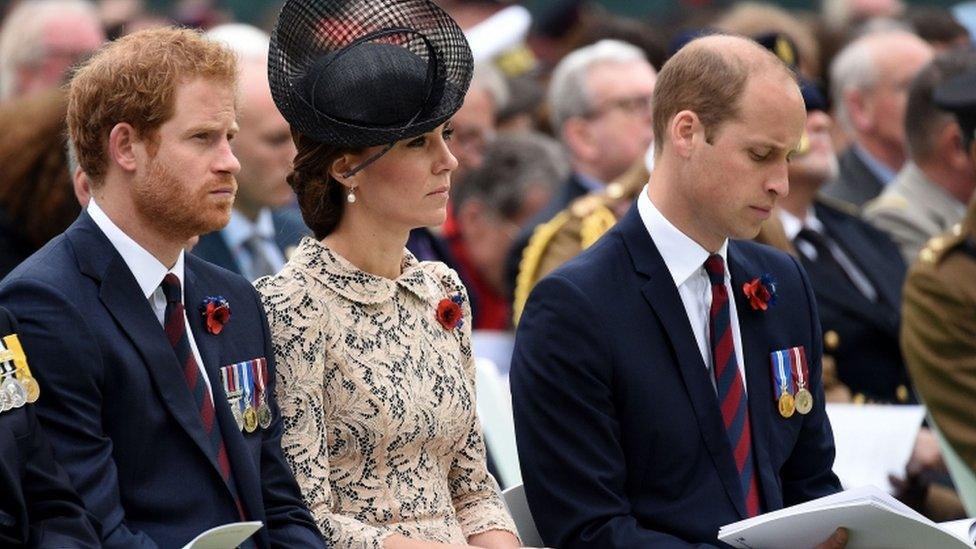Battle of the Somme: Families make 'emotional' journey for 100th anniversary
- Published
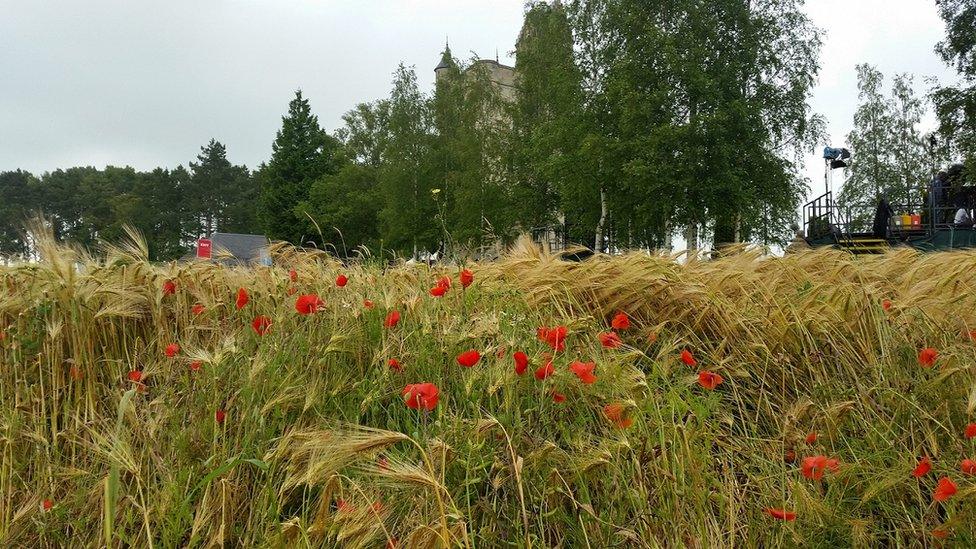
Poppies growing near the Ulster Tower, where the Battle of the Somme's front lines were situationed 100 years ago
About 2,500 people will congregate on Friday at the Ulster Tower in Thiepval, a quiet corner of northern France.
With just hours left until the commemoration marking 100 years since the Battle of the Somme, final preparations are in full swing.
Scores of soldiers march to and from the tower and the Royal Irish Regiment band tunes up for a rehearsal.
The world's media ready themselves to capture the sights and sounds of the anniversary event.
One young soldier jokingly chided journalists - including this one - for clumsily walking through a matting of small stones, scattering them onto the temporary carpet for Friday's event.
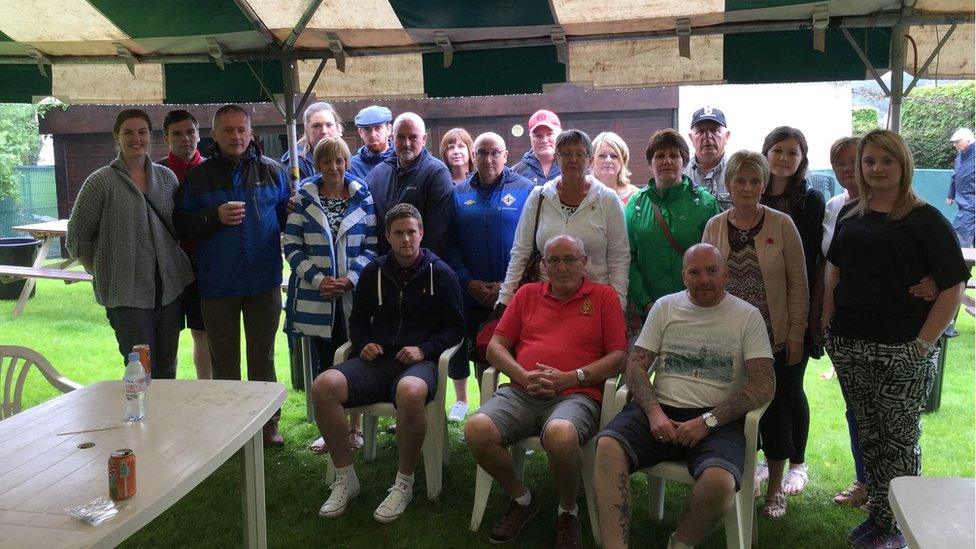
Some of the almost 50 people from the Portadown area who have travelled to the Ulster Tower by bus from London
However, the significance of this anniversary of the World War One battle is not lost on him.
"Tomorrow is just so important," he said. "This battle, the Ulster Division - that's where this regiment goes back to.
"What they did and achieved is where a lot of our reputation and pride comes from."
On 30 June 1916, the men of the Ulster Division were waiting for the seven-day bombardment of the German lines to end.
It was a bombardment of shelling and artillery that reportedly cost up to £6m.
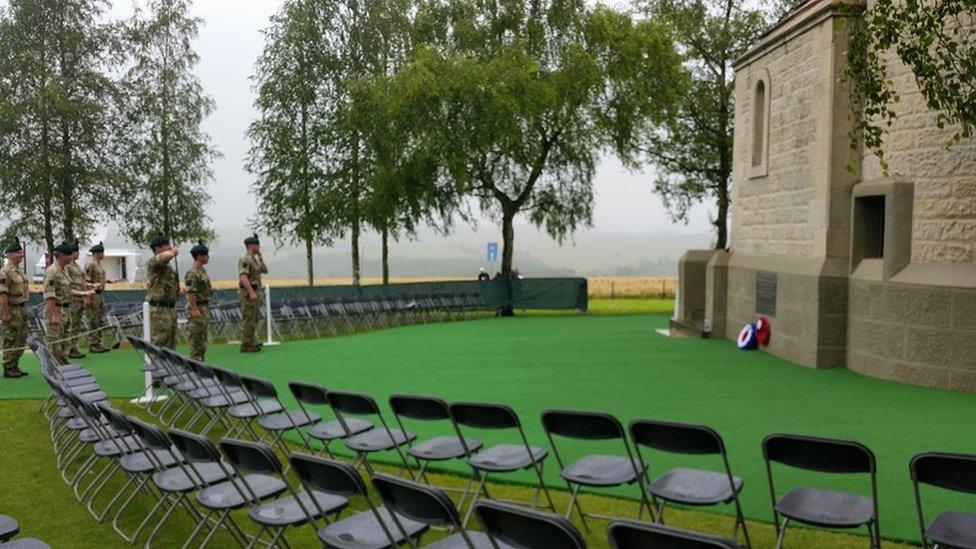
Members of the Royal Irish Regiment rehearse at the Ulster Tower before Friday's event
They waited for the moment on Friday morning when they would go over the top in what would become one of the most infamous days in British military history.
By the end of the first day, 5,000 men of the Ulster Division had been made casualties and up to 2,500 had been killed.
The shock of that loss still reverberates through families today.

The Battle of the Somme
Began on 1 July 1916 and was fought along a 15-mile front near the River Somme in northern France
19,240 British soldiers died on the first day - the bloodiest day in the history of the British army
The British captured just three square miles of territory on the first day
At the end of hostilities, five months later, the British had advanced just seven miles and failed to break the German defence
In total, there were over a million dead and wounded on all sides, including 420,000 British, about 200,000 from France and an estimated 465,000 from Germany

A bus of 49 people from the Portadown area in County Armagh visited the tower ahead of tomorrow's event.
They have been in France since last Friday touring graveyards and battle sites in memory of relatives lost.
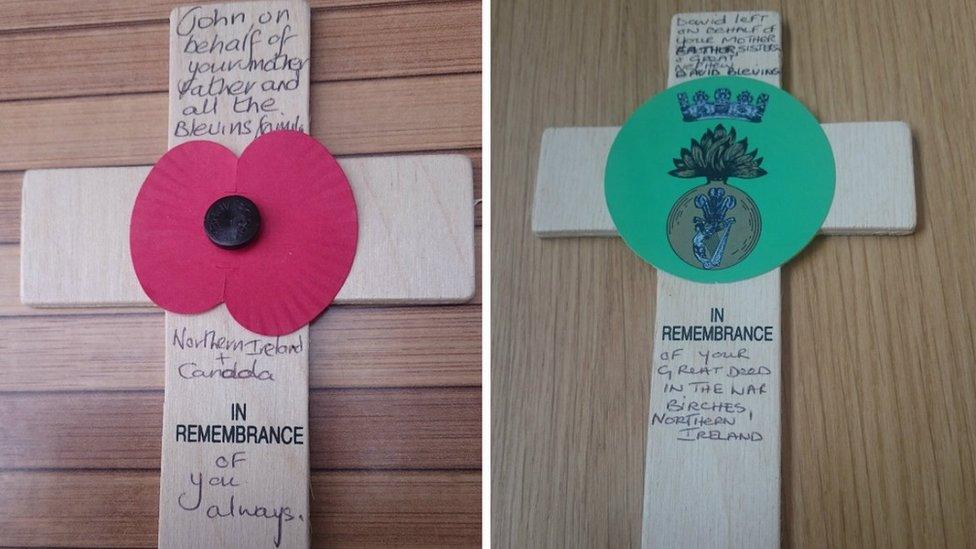
David Blevins, one of the Portadown group, left memorial crosses at the graves of his great-uncles David Woods and John Blevins
"This trip has been five years in the making," Muriel Russell, one of the organisers, said.
"We had the idea after the 95th anniversary, but we wanted to do a trip that was personal so each family could visit where there relatives died."
Some of the group represent several generations of one family, and they range in age from two years old those in their late 70s.
The group are in high spirits and even laugh about having an Edward Carson in the group (no relation to the former unionist leader), but each has a personal story wound into the fabric of the Somme narrative.
Everett Lappin is here for three great-uncles who died in World War One, two of which were killed in the Somme.
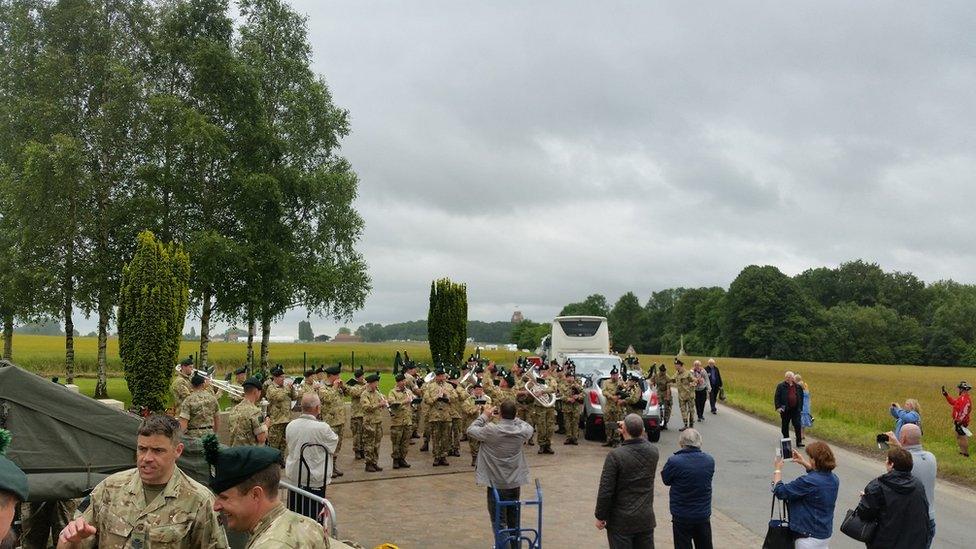
The Royal Irish Regiment's band tuning up for Friday commemoration
"My grandmother used to speak about them when I was younger, though I was sorry in later life I didn't speak to her more," he said.
"She was always sad for her father and mother who had to go though it with their sons."
"This is a personal trip for many people," his wife Wendy added.
"Tomorrow will be an emotional day."
Robert Wallace, the group's tour guide, remembers his grandfather talking to him about the war.
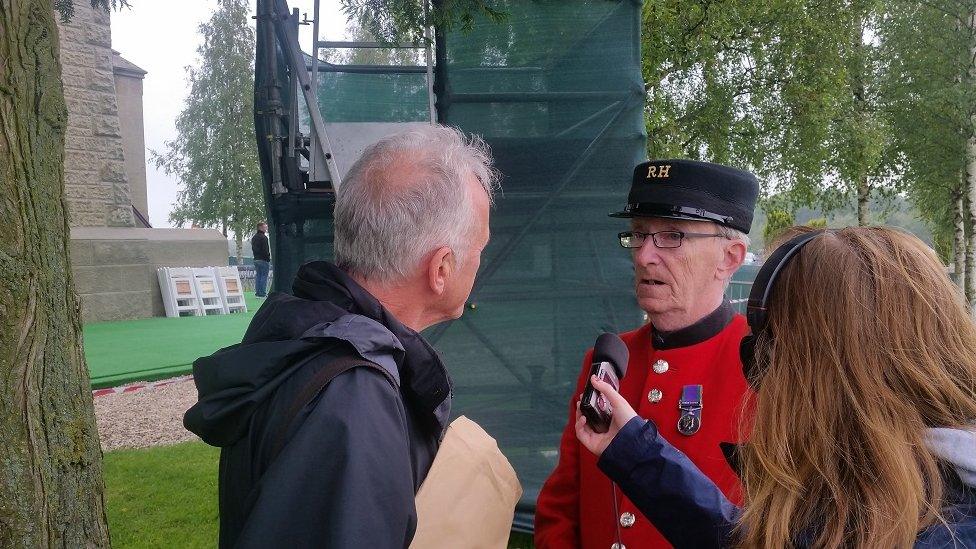
Chelsea Pensioner, Sam Cameron speaks to BBC News NI's Noel Thompson and Claire Graham
"He didn't really speak about it to anyone else," he added.
His great-uncle was also killed at the Somme, trying to save a comrade who had fallen in No Man's Land.
When asked about what Friday's commemoration will mean to people who lost relatives in the battle, he said: "I think for most people it will be a tremendous pride in the achievements of our forebears.
"Also shock at what they actually did endure and determination that their memory will be maintained for future generations."
Sam Cameron, a Chelsea Pensioner and former soldier, is also here.
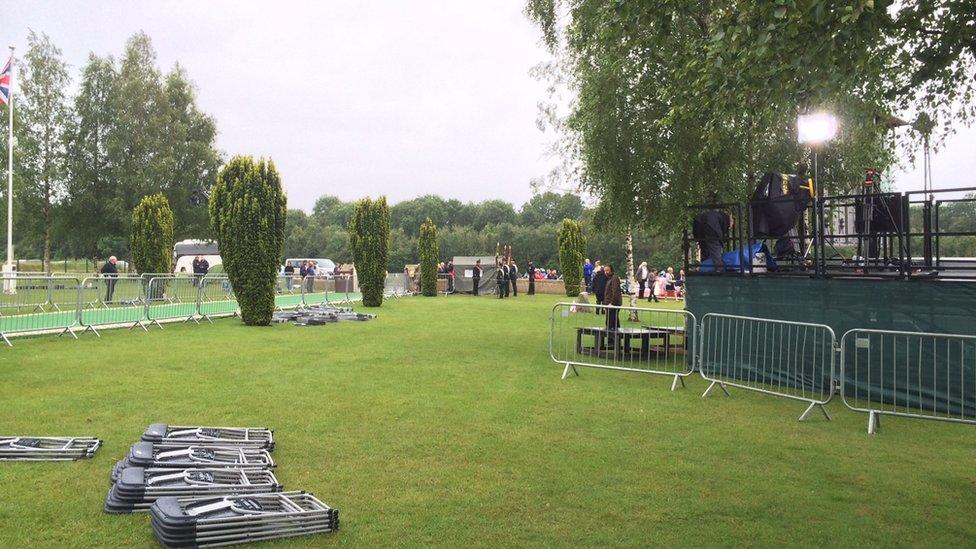
Setting up for the Friday commemoration.
His grandfather fought in the Somme, although he only found out about it seven years ago.
Now his trips here have taken on an added significance.
"Whenever you're travelling here, there's a cemetery to your left and a cemetery to your right," he said.
"Anybody who thinks this is glorifying war - well, I don't think so."
BBC News NI will have full coverage of tomorrow's Somme commemoration event.
- Published30 June 2016
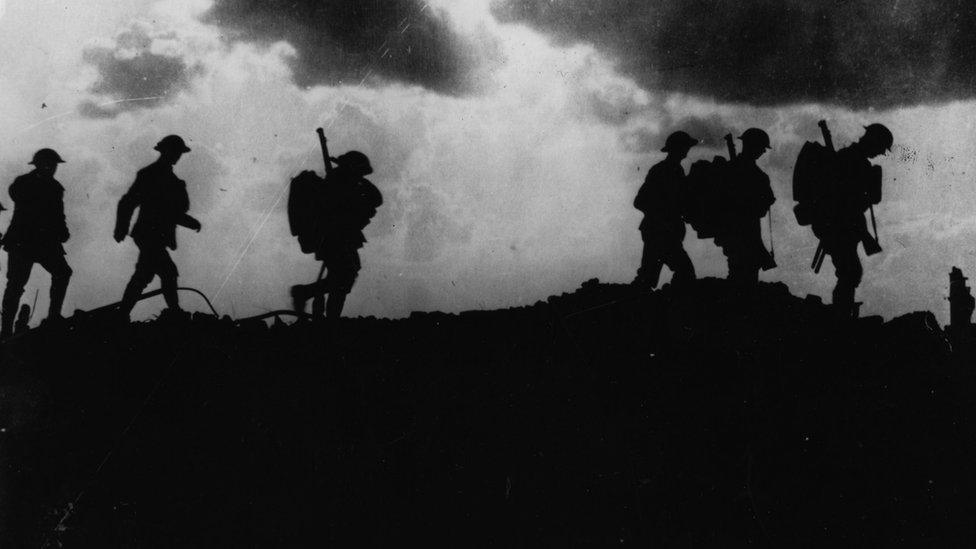
- Published1 July 2016
